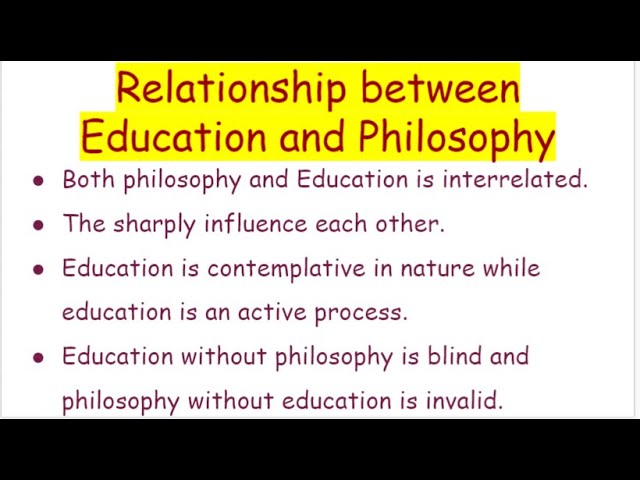How Does Philosophy Shape Education: A Thoughtful Exploration
Keywords To Better Understand The Philosophies Of Education
Keywords searched by users: How does philosophy influence on education impact of philosophy on education pdf, impact of philosophy on education ppt, explain how philosophy influence aims of education, 10 importance of philosophy of education pdf, what is the importance of philosophy in education and in curriculum, importance of philosophy of education essay, how is discipline influenced by philosophy, what is the influence of educational philosophies in education and how it affects the education
How Philosophy Influences Discipline In Schools?
The impact of philosophy on discipline within school environments is a crucial aspect to explore. To comprehensively understand this topic, it’s important to delve into the effective elements of a philosophy of discipline. A well-crafted philosophy of discipline encompasses several key components that play pivotal roles in shaping the overall classroom environment.
One of the foundational aspects is student engagement. This involves the ability to capture students’ attention and pique their interest in the learning process. A philosophy of discipline that emphasizes student engagement recognizes the significance of keeping learners actively involved in the educational journey.
Another essential element is self-government within the classroom. This concept revolves around empowering students to take on roles in administering the effectiveness of the classroom environment. It encourages a sense of responsibility and ownership among students, fostering a collaborative atmosphere that contributes to better discipline and learning outcomes.
In summary, the philosophy of discipline in schools is not merely about enforcing rules but also about promoting active engagement and student involvement through self-governance, creating a more effective and harmonious learning environment.
How Is Discipline Influenced By Philosophy?
The influence of philosophy on discipline is profound and can be likened to the foundational role of a mother in a family. Philosophy is often considered the progenitor of all other academic disciplines, as it provided the conceptual framework and intellectual roots from which every other field emerged. The dynamic between philosophy and other disciplines mirrors that of a mother nurturing her children. Philosophy continues to assume this maternal role by constantly questioning the fundamental principles and assumptions underlying various fields of study, thereby shaping and guiding their development. In essence, philosophy acts as both the origin and sustainer of the diverse branches of knowledge, fostering a symbiotic relationship that enhances our understanding of the world.
What Is The Importance Of Philosophy As An Academic Discipline?
The significance of philosophy as an academic discipline encompasses a multifaceted array of benefits. At its core, philosophy serves as a catalyst for honing one’s problem-solving abilities, equipping individuals with the tools to dissect and scrutinize a plethora of concepts, definitions, arguments, and complex issues. Beyond this, philosophy greatly amplifies our skillset for organizing thoughts and matters, enabling us to adeptly tackle inquiries related to values and ethics. Moreover, it plays an instrumental role in the distillation of crucial insights from vast reservoirs of information, fostering the extraction of essential knowledge amidst the deluge of data. In essence, philosophy serves as an invaluable intellectual compass, guiding us through the intricate landscapes of human thought and inquiry.
Top 38 How does philosophy influence on education




:max_bytes(150000):strip_icc()/JohnLocke-1eb4cc6c4ac84f01a2a10a73478bedee.png)

Categories: Top 18 How Does Philosophy Influence On Education
See more here: c1.chewathai27.com

It helps educators in formulating beliefs, arguments, and assumptions and in making value judgments. Philosophy develops a broad outlook, and it also helps in answering what schools are for, what subjects are important, how students should learn, and what materials and methods should be used.Effective Elements of the Philosophy. An effective philosophy of discipline addresses certain keys: Student engagement: the capturing of the students’ attention and interest. Self-government: the practice of allowing the students to administer the effectiveness of the classroom.
Learn more about the topic How does philosophy influence on education.
- 3. Philosophical Foundations of Curriculum
- Philosophy of Discipline in the Classroom – Study.com
- Relevance of Philosophy to Any Discipline
- Why Study Philosophy? – James Madison University
- IMPACT OF PHILOSOPHY ON EDUCATION
- Essay on the Influence of Philosophy on Different Aspects of …
See more: https://c1.chewathai27.com/category/money-policy